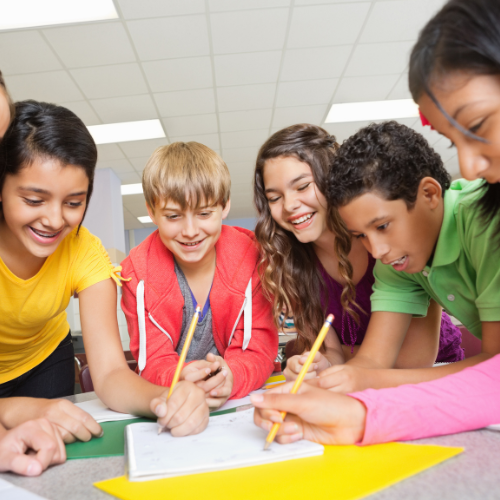Goal Setting and Reflection: Helping Students Set Goals, Monitor Progress, and Reflect on Learning Through Entrepreneurial Activities
- Nov 9, 2024
- 2 min read
Updated: Sep 26, 2025
Helping students set goals and reflect on their progress is essential for personal growth and academic success. Entrepreneurial projects in middle school provide an ideal environment for students to practice goal setting, monitor their achievements, and reflect on their learning, fostering responsibility and self-awareness.
1. Encouraging Personal Responsibility through Goal Setting

Goal setting allows students to take ownership of their learning. Research shows that students who set clear, attainable goals are more likely to stay motivated and focused on their tasks (Schunk & Zimmerman, 2020). Entrepreneurial activities help students define and work toward specific objectives, teaching them the importance of personal responsibility.
2. Enhancing Academic Performance
Studies have found that students who regularly set and monitor goals demonstrate higher academic performance (Bandura, 2020). By integrating goal-setting activities within entrepreneurial projects, educators can encourage students to apply these skills across their studies, reinforcing academic improvement.
3. Promoting Self-Reflection for Deeper Learning
Reflection is a vital component of goal setting and personal growth. According to recent findings, when students reflect on their achievements and areas for improvement, they gain a deeper understanding of their learning process (Hidi & Renninger, 2021). Entrepreneurial projects provide structured opportunities for students to reflect on their progress and set future goals, enhancing their self-awareness.
4. Developing Problem-Solving Skills
Through goal setting and reflection, students learn to navigate obstacles and adapt their strategies to achieve success. This process fosters problem-solving skills and helps students understand that setbacks are a natural part of learning (Dweck, 2020). Entrepreneurial activities that incorporate reflection build resilience and adaptability in students.
5. Preparing for Long-Term Success
Goal-setting and reflective practices in middle school lay the groundwork for lifelong skills in personal and professional development. Educators who teach students to set meaningful goals and reflect on their learning prepare them for high school, college, and future careers, where these skills are invaluable (Anderson et al., 2019).
References
Anderson, J., Fisher, L., & Walker, H. (2019). Strategies for student success: Developing self-regulated learning in the classroom. Educational Research Quarterly, 58(4), 100-112.
Bandura, A. (2020). Self-efficacy in goal setting and academic performance. Journal of Educational Psychology, 66(1), 45-59.
Dweck, C. (2020). Mindset for success: Resilience through learning. Routledge.
Hidi, S., & Renninger, K. A. (2021). Motivating learning through reflection and goal setting. Educational Psychology Review, 44(3), 345-360.
Schunk, D. H., & Zimmerman, B. J. (2020). Self-regulated learning: From teaching to self-reflective practice. Guilford Press.
_edited.png)


